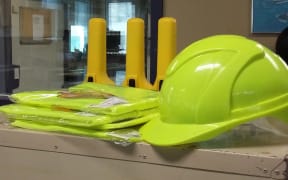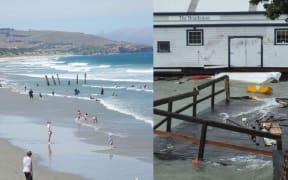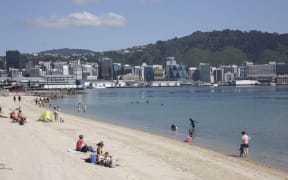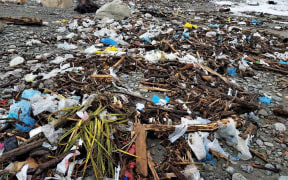Health authorities are warning people in flooded areas to take extra precautions to avoid getting sick from contaminated water.
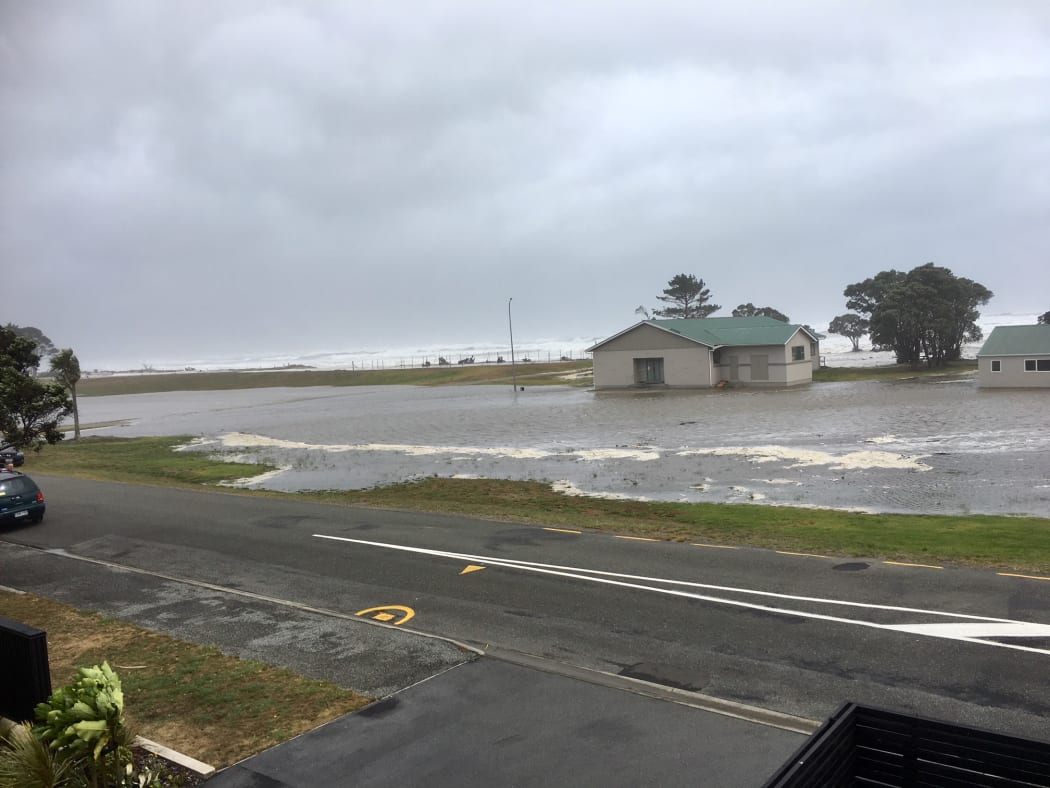
Flooding in Westport Photo: Chris Cooper
Buller District Council has disinfected areas where there have been known sewage overflows.
However, Canterbury-West Coast medical officer of health Alistair Humphrey said people should avoid any contact with floodwaters, which usually carried a risk of contamination.
"Some people think 'It's just wet, it doesn't matter, we can go back into our houses' but there are risks from sewage contamination.
"Effectively you have to treat flood water as if it's been contaminated," he said.
Residents cleaning up their flood-damaged homes should wear gloves and masks to guard against mould that could develop, he said.
"Anything that's still damp will be contaminated. With soft furnishings, it's better to throw them away rather than try to dry them out, because they can cause a problem later on."
Civil Defence and public health authorities are also warning parents to keep children away from playgrounds in flood affected areas as they were likely to be contaminated with sewage.
Dr Humphrey said sunlight would kill bacteria within a few days, but people should stay away from playground equipment while it was still damp.
How to stay safe
- Avoid contact with flood waters if you can and assume they will be contaminated by sewage.
- There is also a risk of injury from floating objects and hazards hidden below the surface.
- Until power lines have been fully restored there may be a danger of electrocution.
- If you do come into contact with floodwaters, change out of any wet clothes and shoes and put them aside to be washed later.
- Wash skin that has come into contact with floodwaters as soon as you reasonably can - or use an alcohol-based hand sanitiser.
Drinking water
- Buller District Council says mains water supplies are safe, with Punakaiki the only exception currently.
- A boil water notice remains in place for Punakaiki and there is still the potential for new ones to be put in place.
- A boil water notice means you need to boil or treat all water from taps / tankers before drinking, brushing teeth or using in food preparation.
- Bringing water to a rolling boil is sufficient to kill bugs.
- Water that is visibly clear can be made safe to drink by adding half a teaspoon of a standard (unscented) bleach such as Clorox or Janola to 2 litres of water.
- If you don't have mains water and you think it has been affected by surface run-off, don't use it for drinking purposes.
Food
- If you have lost power at some stage, avoid opening your fridge and freezers unnecessarily.
- If frozen food has been defrosted but has been kept chilled, it should be used soon - as if it had been bought fresh.
- Do not refreeze high risk items such as meat, fish and poultry. If you think these high risk items may have been at room temperature for two or more hours, do not eat them - if it doubt, throw it out.
- Any food stuffs which were not stored in a waterproof container and anything in bottles and jars with crown caps that has been under flood water should be discarded.
Check on neighbours
- Check they have supplies including their medications and share advice on food storage.
- If you need to see a GP, or prescription medicines, and have trouble getting there, phone them for advice.
- Even if they are closed your call will be answered by a trained registered nurse who can advise you on what to do.
- In an emergency, always ring 111.
